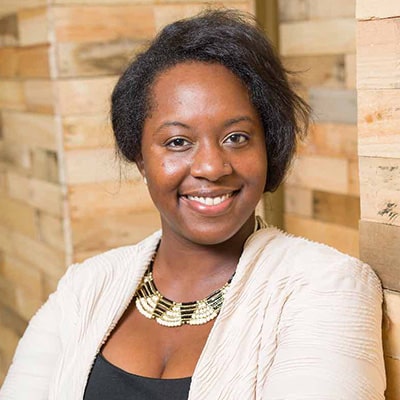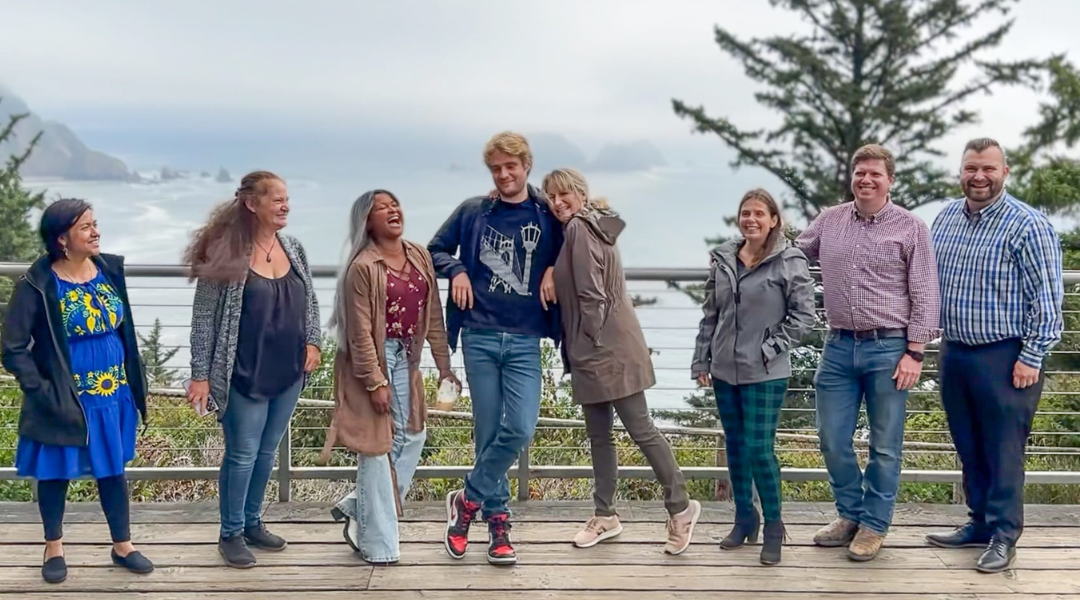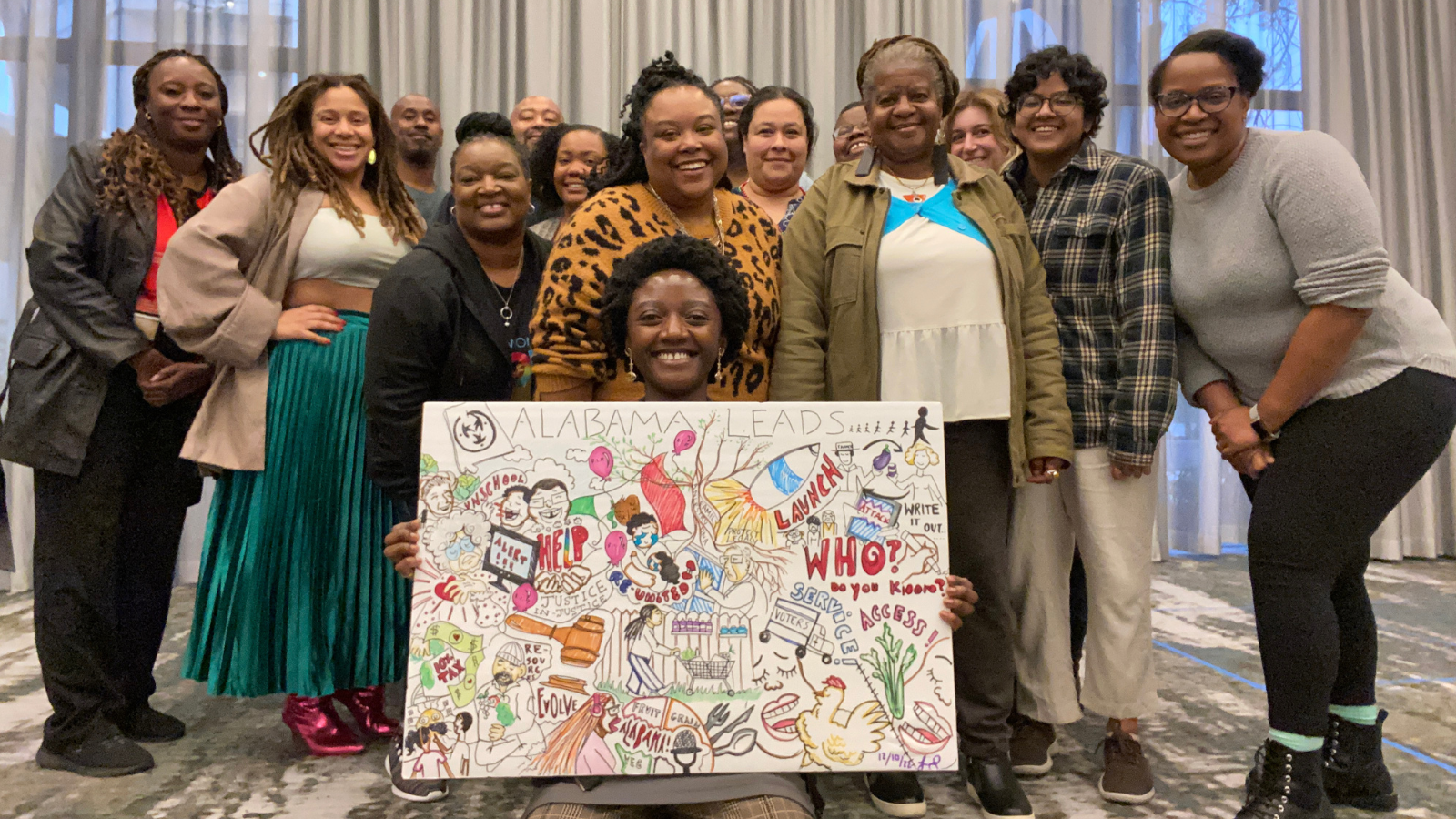What is Alabama Leads and what inspired you to start it?
 Alabama Leads is a cohort experience for grassroots leaders with a focus on Black and brown leaders who are trying to create a better Alabama. We’re bridging generational divides and providing them with a safe and supportive community. Many grassroots leaders in Alabama, particularly Black and brown leaders, are inspired to do their work by the legacy of our civil rights heroes. Alabama Leads understood that we can connect diverse groups in Alabama by connecting their leaders.
Alabama Leads is a cohort experience for grassroots leaders with a focus on Black and brown leaders who are trying to create a better Alabama. We’re bridging generational divides and providing them with a safe and supportive community. Many grassroots leaders in Alabama, particularly Black and brown leaders, are inspired to do their work by the legacy of our civil rights heroes. Alabama Leads understood that we can connect diverse groups in Alabama by connecting their leaders.
I started it with Rev. Karen Shuford, after we were approached by an organization called Over Zero that does workshops and trainings on how to prevent or reduce identity-based violence. They noticed a lot of energy in Alabama for this work, so we all started talking about what it could look like to have something here that’s more long-term than a weekend session.
What problem are you trying to solve?
We’re trying to address the disconnection and burnout many grassroots Black and brown leaders feel when the work they’re doing can feel so big and there are not always people around them who understand why they’re so driven. We recognize that by investing in leaders, we are also investing in the communities they are a part of and see this as part of a long-term strategy for building connections across Alabama.
Our purpose is to fill the cup of people doing the work — to give them a safe space to gather and connect with people who are like them but maybe working in a different part of the state or from a different lens. To allow them to be seen, and to share how they’re really doing with a group of people who will understand and be able to provide encouragement, ideas and potential solutions.
How does Alabama Leads work?
In our pilot year, we kicked things off by bringing everyone together for an in-person gathering at an urban farm called EAT South in Montgomery, Alabama over 2.5 days. We paid for everything, and each person also received a stipend. We want to make it welcoming and not a burden.
We followed that with virtual programming focused on different topics, using the curriculum that Over Zero provides. There’s also an email thread where people will drop things – an upcoming event, a victory in their work, or a need.
We came back together at the end of the year to continue exchanging knowledge as well as to connect over wine, self-portraits, and to share our reflections. We’ll keep working with this pilot cohort through 2023, to build on the work we’re doing and get their input before we launch the next group.
Why choose a cogenerational approach?
It happened naturally. The benefit of having two co-leads is that the Reverend is in her 50s and I’m in my 30s with a background in nonprofit work, so naturally our networks look very different. Our first cohort of 13 leaders is diverse in every way — age, politics, religion, issue areas, you name it. Every single person has contextualized the humanity of what’s going on in our state.
I got married last year, and Karen threw me this great bridal shower. We are truly besties now. Sometimes good people just come together and then realize after how much stronger we are because of our differences.
What’s your big, audacious vision? If you succeed, what change will we see?
Zooming out, we want an Alabama that is safe and welcoming for everyone. We want an Alabama where we can all flourish. So many people are already doing the work to get us there. That’s why in terms of the work being done, I don’t know if I’d frame it as change. I want to take care of the people doing this work. I know what it feels like to be a type-A community organizer who sacrifices your life for this work. It is exhausting and it is not sustainable and it can be very lonely. I want to have a space where people can be, rest, dream, be honest and connect. I only need it to be what it is and I can’t predict that.
But I do want to be able to support more leaders, and for us to broaden this work and give it to a lot more people – so they, too, can have that feeling of rest and community and space to ask for what they need and dream with like-minded people. We want to take care of and connect the people who are building a safer and stronger Alabama. For that, I’ll need more funding!
How can people get involved with your work?
They can go to ALLeads.org to learn more about what we’re doing and dig into the important work of our leaders.
Favorite book?
How to Be Idle: A Loafer’s Manifesto by Tom Hodgkinson. I found it in high school or college. I’m very much an overachiever who is secretly afraid that I’m lazy. There’s a part of me that just wants to wander, observe and write. Hodgins takes a scholarly approach to why being idle is important, and he talks about the importance of dreaming.
Learn more about Natilee McGruder here.






 Alabama Leads
Alabama Leads